About the Editors
Editor-in-Chief
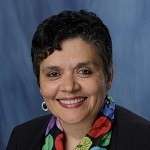 Malú Gámez Tansey, PhD
Malú Gámez Tansey, PhD
Center for Translational Research in Neurodegenerative Disease
Parkinson's Foundation Research Center of Excellence
University of Florida
FL, USA
Malú Gámez Tansey conducts basic and translational research on the role of the immune system and inflammatory responses in healthy brain aging and in neurodegenerative diseases. She has a major interest in the role of the gut-brain axis in central-peripheral immune crosstalk critical for CNS health. The long-term goal of her research is to understand unique and common underlying mechanisms in proteinopathies to develop more effective immunomodulatory therapeutics to prevent and treat neurodegenerative diseases.
Deputy Editor
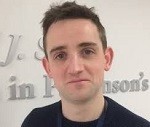 David Breen, MD, PhD
David Breen, MD, PhD
Senior Clinical Research Fellow and Honorary Consultant Neurologist
Centre for Clinical Brain Sciences
University of Edinburgh, Scotland
David has diverse research interests including studying the influence of sleep and circadian disruption on brain health; studying genetic and environmental PD risk factors using large datasets; identifying causes and treatments for neglected non-motor symptoms in PD; and developing novel models of clinical care (including the use of wearable home-based monitoring).
Senior Managing Editor
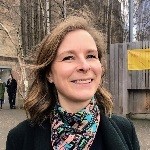 Viki Hurst, PhD
Viki Hurst, PhD
Viki obtained her PhD in animal behaviour and psychopharmacology at Newcastle University and did postdoctoral work at the University of Sheffield investigating treatments in animal models of cancer-induced bone pain. She later worked for a UK research funder where she developed resources to improve the experimental design and reporting of in vivo research. Viki has several years’ experience in OA publishing, first as an Editor for Scientific Data, and is now Senior Managing Editor at the npj series.
Viki is based in the Springer Nature London office.
Associate Editors
 Jane Alty
Jane Alty
A/Professor of Neurology
Wicking Dementia Research and Education Centre, University of Tasmania
Hobart, Tasmania, Australia
My research focuses on developing low cost accessible digital tools to precisely detect the earliest stages of Alzheimer's disease and Parkinson’s disease, and to track their trajectories and responses to interventions. I also research the motor-cognitive associations of healthy ageing and neurodegenerative disorders. I use computer science approaches to objectively quantify movement features in detail.
 Paramita Chakrabarty, PhD
Paramita Chakrabarty, PhD
Associate Professor, Neuroscience
University of Florida, Gainesville, USA
I am an experimental neuropathologist with interest in creating models of neurodegenerative dementias, focusing on understanding the role of inflammation in disease pathogenesis. My lab also works on understanding how self-templating of proteins such as tau and synuclein contribute to the disease process.
 Amgad Droby
Amgad Droby
Laboratory for Early Markers of Neurodegeneration (LEMON), Neurological institute
Tel Aviv Sourasky Medical Center
Tel Aviv, Israel
My research focuses mainly on investigating novel early biomarkers for neurodegenerative diseases, as well as studying the interplay between neurodegenerative and compensatory processes in these individuals applying multimodal imaging approaches including structural and functional magnetic resonance imaging (MRI) techniques.
 John Duda, MD
John Duda, MD
Department of Neurology, Philadelphia VA Medical Center
University of Pennsylvania
PA, USA
John Duda's research activities include basic science investigations into the role of Lewy pathology in the pathophysiology of Parkinson's disease and related disorders as well as investigations into the mechanisms involved in the development of chronic traumatic encephalopathy.
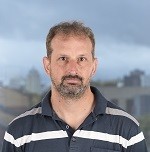 Nic Dzamko, PhD
Nic Dzamko, PhD
School of Medical Sciences
University of Sydney
Sydney, Australia
Dr Dzamko is a biochemist with expertise in cell signaling, metabolism, immunology and neuroscience. His research group currently focuses on determining the underlying causes of neurodegenerative Parkinson’s diseases, and in particular using our findings to facilitate much needed therapeutic approaches and to identify Parkinson's disease biomarkers. They employ predominantly human biosamples and human cellular models for our studies, including the use of induced pluripotent stem cells.
 Jaime Hatcher-Martin, MD, PhD
Jaime Hatcher-Martin, MD, PhD
Movement Disorders Service Line Chief
Synapticure
USA
Jaime Martin serves as the Movement Disorders Service Line Chief at Synapticure. Her research has focused on environmental exposures in Parkinson’s disease (PD), PD biomarkers, wearables/remote patient monitoring and telehealth.
 Daniel Huddleston, MD
Daniel Huddleston, MD
Emory University School of Medicine
Atlanta, GA
As a physician-scientist, Dr. Huddleston sees patients with neurodegenerative parkinsonism, and he conducts translational MRI research as Principal Investigator of the Parkinsonism Neuroimaging Laboratory at Emory University. His work focuses on MRI approaches to quantify neuromelanin, iron, and other tissue characteristics relevant to neurodegenerative disease biology in vivo. He received his medical degree from Columbia University, College of Physicians and Surgeons, in 2006. He then completed his neurology residency training at Columbia’s Neurological Institute of New York, followed by a fellowship at the Emory Movement Disorders Clinic.
 Hilal A. Lashuel, PhD
Hilal A. Lashuel, PhD
École polytechnique fédérale de Lausanne (EPFL)
Lausanne, Switzerland
Dr Lashuel's research focuses on applying integrated chemical, biophysical, and molecular/cellular biology approaches to elucidate the molecular and structural basis of protein misfolding and aggregation and the mechanisms by which these processes contribute to the pathogenesis of neurodegenerative diseases including Parkinson’s disease (PD), Alzheimer’s disease (AD),Huntington’s disease (HD) and Amyotrophic Lateral Sclerosis (ALS).
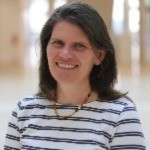 Katja Lohmann, PhD
Katja Lohmann, PhD
Professor, Institute of Neurogenetics
University of Lübeck
Luebeck, Germany
Dr Katja Lohmann is Professor for Molecular Genetics of Rare Diseases at the Institute of Neurogenetics at the University of Lübeck, Germany. Her research focuses on elucidating genetic factors for movement disorders such as Parkinson´s disease, dystonia, and ataxia. She is also interested in establishing genotype-phenotype correlations in these disorders. Together with her lab team, she aims to contribute to a better understanding of the molecular mechanism altered by pathogenic variants in disease-linked genes.
 Alfonso Martín-Peña, PhD
Alfonso Martín-Peña, PhD
Assistant Professor
Dept. of Neuroscience, McKnight Brain Institute
University of Florida
FL, USA
Alfonso Martín-Peña, Ph.D. is an Assistant Professor of Neuroscience at the University of Florida (UF) and the lead investigator of the Laboratory for Neurogenetics in Neurodegenerative Diseases. Dr. Martín-Peña obtained his Ph.D. in Neuroscience from Complutense University of Madrid, carrying out his doctoral work on synaptogenesis and behavior at the Cajal Institute. This was followed by post-doctoral work on learning and memory at Baylor College of Medicine and The Scripps Research Institute. His work focuses on the early mechanisms of disease progression, with special emphasis on the factors that interfere with sleep cycles during the prodromal period.
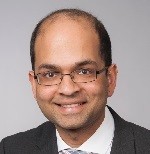 Muthuraman Muthuraman, PhD
Muthuraman Muthuraman, PhD
Neural Engineering with Signal Analytics and Artificial Intelligence (NESA-AI) Universitätsklinikum Würzburg Department of Neurology
Würzburg, Germany
His current research interests focusses on movement disorder patients using computational methods for time series analysis and source analysis on oscillatory signals, function of oscillatory activity in central motor systems, biomedical statistics, connectivity analyses, multimodal signal processing and analyses of EEG, MEG, fMRI and EMG, structural and network analyses on anatomical MRI and DTI, machine learning and deep learning.
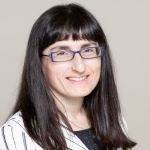 Elena Moro, MD, PhD, FEAN, FAAN
Elena Moro, MD, PhD, FEAN, FAAN
Division of Neurology
Grenoble Alpes University Hospital
Grenoble, France
Dr. Elena Moro is a Professor of Neurology at the Grenoble Alpes University and Director of the Movement Disorders Center at the Centre Hospitalier Universitaire (CHU) of Grenoble, France. She is also the Head of the Department of Neurology, Psychiatry, Neurological Rehabilitation and Forensic Medicine at the CHUGA. Her major research interest is neuromodulation for treating movement disorders. In particular, over the years she has been focused in better understanding the mechanisms of action of deep brain stimulation (DBS), DBS indication in Parkinson's disease and dystonia and exploring new DBS targets. Oliver Rawashdeh, PhD
Oliver Rawashdeh, PhD
School of Biomedical Sciences, Faculty of Medicine
The University of Queensland
Brisbane, Queensland, Australia
My research centers around defining the mechanisms by which circadian rhythms and sleep regulate physiology and how alterations in these processes lead to neurodegenerative diseases and their progression. The long-term goal of my research is to develop chronotherapeutics as preventative and quality-of-life-improving treatments for neurodegenerative diseases. Ryan Roemmich, PhD
Ryan Roemmich, PhD
Kennedy Krieger Institute and Johns Hopkins University School of Medicine
MD, USA
I am a human movement scientist interested in motor function and rehabilitation of persons with neurologic damage or disorders. My background spans engineering, kinesiology, and neuroscience. My research focuses on combining these disciplines to understand how the nervous system controls movement and how we can improve movement abilities in persons with motor deficits.
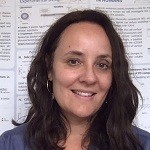 Marina Romero-Ramos, PhD
Marina Romero-Ramos, PhD
Aarhus University
Aarhus, Denmark
Dr Romero-Ramos’ research focuses on the -synuclein induced neurodegenerative process in Parkinson’s disease and other synucleinopathies. During the last decade her lab has been particularly interested on characterizing the immune response and its role in the disease progression. In her studies she addresses not only microglia response, but also the role of peripheral immune cells. To do so, the lab uses both animal models and human derived samples to ultimately define relevant players in the disease process that can be used for diagnostics and therapeutics. Timothy Sampson, PhD
Timothy Sampson, PhD
Emory University School of Medicine
Atlanta, GA,USA
Dr. Sampson’s lab investigates host-microbe interactions at the interface of Parkinson’s disease and other neurodegenerative conditions. The lab seeks to identify indigenous microbial species and microbially-derived factors that contribute to exacerbation or resistance to pathologies in order to develop new paradigms for therapeutics and deepen the understanding of the sporadic PD etiology.
 Véronique Sgambato, PhD
Véronique Sgambato, PhD
Institute of Cognitive Science Marc Jeannerod, CNRS & University of lyon
INSERM / CNRS
Bron, France
After studying neurosciences in France, Canada and United States, Dr Sgambato came back to France to study Parkinson’s disease. Her research focuses on the pathophysiology of motor and non-motor symptoms of Parkinson’s disease, combining a clinical approach in patients and a preclinical approach in animals.
 Andrew B. Singleton, PhD*
Andrew B. Singleton, PhD*
National Institute on Aging (NIA), NIH
MD, USA
Andrew Singleton's research interests focus on the genetics of neurological disease. His team investigates the genetic and cellular mechanisms underlying simple-Mendelian and complex neurological diseases. *Dr. Singleton is serving in his personal capacity.
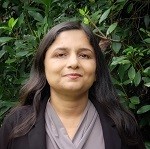 Aparna Wagle Shukla, MD
Aparna Wagle Shukla, MD
Norman Fixel Institute for Neurological Diseases
University of Florida
FL, USA
Dr. Aparna Wagle Shukla is a Professor of Neurology at the University of Florida. She is the Director for Clinical trials and Division Chief for Movement Disorders Research at the Norman Fixel Institute for Neurological Diseases. Her primary focus is advancing clinical research for Parkinson’s disease, dystonia, and tremor with neuromodulation-based interventions such as transcranial magnetic stimulation and deep brain stimulation.
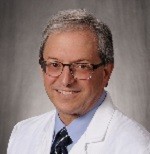 Richard Smeyne, PhD
Richard Smeyne, PhD
Thomas Jefferson University
PA, USA
Dr. Smeyne's has studied experimental Parkinson's disease for 30 years, using both induced and familial animal models. His lab focuses on three areas: 1) the role of viruses as an etiological factor for Parkinson's disease, 2) the interactions of the immune system with the brain and 3) the mechanisms underlying exercise-induced neuroprotection in Parkinson's disease.
Advisory Editors
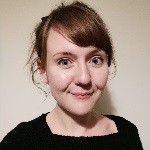 Sophie Morgan, PhD
Sophie Morgan, PhD
Sophie received her PhD from the University of Cambridge where she studied α-synuclein aggregation and propagation. At the Oxford Drug Discovery Institute, her postdoctoral work investigated novel drug targets for Parkinson’s disease. Sophie is a Senior Editor at Nature Communications where she handles submission on neurodegeneration and neurological diseases.
Editorial Board Members
Angelo Antonini, IRCCS Hospital San Camillo & Padua University Hospital, Venice, Italy
Nigel S. Bamford, University of Washington, Seattle, WA, USA
Bruno Benitez, Harvard Medical School - BIDMC, Boston, MA, USA
Erwan Bezard, University of Bordeaux, Bordeaux, France
Sandra Blaess, University of Bonn, Bonn, Germany
David J. Brooks, Aarhus University, Aarhus, Denmark
Richard Brown, King's College London, London, UK
Patrik Brundin, Van Andel Research Institute, Grand Rapids, MI, USA
Francisco Cardoso, Federal University of Minas Gerais, Belo Horizonte, Brazil
W. Michael Caudle, Emory University, Atlanta, GA, USA
Paramita Chakrabarty, University of Florida, Gainesville, FL, USA
Kelvin Chou, University of Michigan, Ann Arbor, MI, USA
Mark R. Cookson, National Institute on Aging (NIA), NIH, Bethesda, MD, USA
Stephanie Cragg, University of Oxford, Oxford, UK
Grant Dewson, Walter and Eliza Hall Institute, Melbourne, Victoria, Australia
Victor Dieriks, The University of Auckland, Auckland, New Zealand
Roberto Erro, University of Salerno, Fisciano SA, Italy
Sheila Fleming, University of Cincinnati, Cincinnati, OH, USA
Edward A. Fon, McGill University, Quebec, Canada
Susan Fox, University of Toronto, Toronto, Canada
Joseph H. Friedman, Brown University, Providence, RI, USA
Victor SC Fung, University of Sydney, Sydney, Australia
Howard E. Gendelman, University of Nebraska Medical Center, Omaha, NE, USA
Dwight German, The University of Texas Southwestern Medical Center, Dallas, TX, USA
Ashley S. Harms, University of Alabama at Birmingham, Birmingham, AL
Nobutaka Hattori, Jutendo University School of Medicine, Tokyo, Japan
Michael Henderson, Van Andel Institute, Grand Rapids, MI, USA
Karen Herlofson, Sorlandet Hospital, Arendal, Norway
Madelyn Houser, Nell Hodgson Woodruff School of Nursing at Emory University, Atlanta, GA, USA
Peter Jenner, King's College London, London, UK
Beom Seok Jeon, Seoul National University, Seoul, Korea
Un Jung Kang, Columbia University, New York, NY, USA
Michael G. Kaplitt, Cornell University, New York, NY, USA
Diego Kaski, University College London, London, UK
Deniz Kirik, Lund University, Lund, Sweden
Benzi M. Kluger, University of Colorado, Denver, CO, USA
Anthony E. Lang, University of Toronto, Toronto, Canada
Irene Litvan, University of California, San Diego, La Jolla, CA, USA
Jau-Shin Lou, University of North Dakota and Sanford Health, ND, USA
Davide Martino, King's College London, Hospital NHS Foundation Trust, London, UK
Ignacio F. Mata, Cleveland Clinic Foundation, Cleveland, OH, USA
Mark S Moehle, University of Florida, Gainesville, FL, USA
Per Odin, Skåne University Hospital, Lund, Sweden
Santiago Perez-Lloret, Catholic University, Buenos Aires, Argentina
Christian Pifl, Medical University of Vienna, Vienna, Austria
Marios Politis, Imperial College London & King's College London, London, UK
Anupam Raina, University of Texas Southwestern Medical Center, Dallas, TX, USA
Heinz Reichmann, Technische Universitaet Dresden, Dresden, Germany
Emily Rocha, Department of Neurology, University of Pittsburgh, PA, USA
Raymond Rosales, University of Santo Tomas Hospital, Manila, Philippines
Timothy Sampson, Emory University, Atlanta, GA, USA
Filip Scheperjans, Helsinki University Hospital, Helsinki, Finland
Anette-Eleonore Schrag, University College London, London, UK
Vrutangkumar V Shah, Oregon Health & Science University, Portland, OR, USA
Jie Shen, Harvard Medical School, Boston, MA, USA
Yoland Smith, Emory University, Atlanta, GA, USA
Maria Grazia Spillantini, University of Cambridge, Cambridge, UK
Fabrizio Stocchi, IRCCS San Raffaele Rome, Rome, Italy
Ryosuke Takahashi, Kyoto University Graduate School of Medicine, Kyoto, Japan
Caroline Tanner, San Francisco VA Medical Center & UCSF - San Francisco, CA, USA
Lars Timmermann, University of Cologne, Cologne, Germany
Ayse Ulusoy, German Center for Neurodegenerative Diseases, Bonn, Germany
Laura A. Volpicelli-Daley, University of Alabama, Birmingham, AL, USA
Courtney C. Walton, The University of Sydney, Sydney, Australia
Daniel Weintraub, University of Pennsylvania, Philadelphia, PA, USA
Yih-Ru Wu, Linkou Chang Gung Memorial Hospital, Taoyuan City, Taiwan
Richard J. Youle, National Institute of Neurological Disorders and Stroke (NINDS), NIH, Bethesda, MD, USA
Zhenyu Yue, Icahn School of Medicine at Mount Sinai, New York, NY, USA
Luigi Zecca, Institute of Biomedical Technologies, National Research Council, Segrate, Italy
Panagiotis Zis, Sheffield Teaching Hospitals NHS Foundation Trust, Sheffield, UK
Editors Emeritus
K. Ray Chaudhuri, MD FRCP DSc
Department of Basic and Clinical Neuroscience, King's College London, London, UK
David Sulzer, PhD
Department of Neurology, Columbia University, NY, USA
Interested in joining the journal team?
If you are interested in joining the journal as an Editorial Board Member or Associate Editor, please complete this Google Form. Associate Editors are part of the editorial team that handle manuscripts, while Editorial Board Members are regular reviewers and are consulted for ad hoc advice. We will contact you if your expertise meets the needs of the journal.
Nature Portfolio journals are committed to promoting practices that support diversity, equity and inclusion in science communication and publishing, and we strongly encourage gender, race, ethnic, geographic, career stage and other diversity in our journal teams. Our in-house staff will use your information only for the purposes of identifying new editorial team or board members. Please contact the journal by email if you would like to remove your information from these records.
Please note that we are not able to respond to all applicants.
